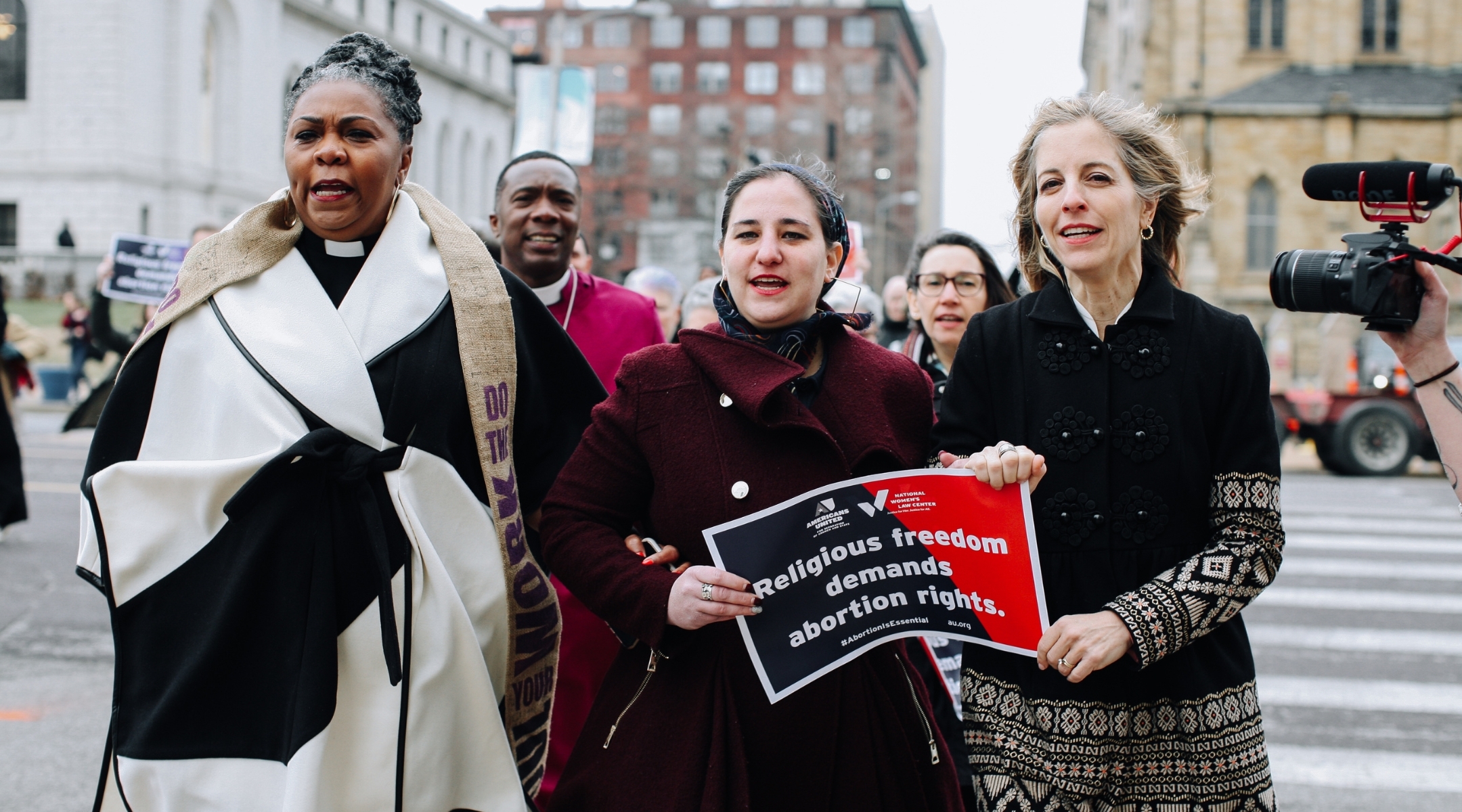Missouri judge rejects suit by interfaith clergy, including rabbis, that challenged abortion ban
The petitioners had argued in their lawsuit that the bill established its own religion. But the judge wrote that the main argument of abortion opponents is not exclusively a religious belief

From left to right: Rev. Traci Blackmon, Maharat Rori Picker Neiss and Americans United for Separation of Church & State CEO Rachel Laser march to the Civil Courts building in St. Louis. (Courtesy of Americans United for Separation of Church & State)
(JTA) — A Missouri judge upheld the state’s abortion ban Friday, rejecting efforts by a group of 14 interfaith clergy, including rabbis, who sought to protect reproductive rights by suing the state on religious freedom grounds.
The faith leaders, among them five rabbis from multiple Jewish denominations, filed their suit in January 2023. They charged that lawmakers who voted to ban nearly all abortions acted according to their personal religious beliefs, violating the separation of church and state enshrined in Missouri’s constitution. The so-called “trigger bill” went into effect after the Supreme Court removed federal abortion protections in 2022 in Dobbs v. Jackson Women’s Health Organization.
In his decision on Friday upholding Missouri’s ban, St. Louis Circuit Court Judge Jason Sengheiser argued that the language of the state’s abortion law is “similar” to the language of the state constitution, which also includes language like “Supreme Ruler of the Universe” and “Almighty God.”
Sengheiser also noted that the bill paraphrases language famously found in the Declaration of Independence stating that “all men are created equal, that they are endowed by their Creator with certain unalienable Rights, that among these are Life…”
The petitioners had argued in their lawsuit that the bill established its own religion. But Sengheiser wrote that the main argument of abortion opponents is not exclusively a religious belief.
“The Court does not accept Petitioners’ argument that the determination that human life
begins at conception is strictly a religious one,” Sengheiser wrote. “While the determination that life begins at conception may run counter to some religious beliefs it is not itself necessarily a religious belief.”
In a statement issued Friday, Americans United for the Separation of Church and State, speaking on behalf of the clergy members, said they “respectfully” disagreed with the judge’s decision and would be discussing next steps with the faith leaders.
“Missouri’s abortion ban is a direct attack on the separation of church and state, religious freedom and reproductive freedom,” Americans United said in their statement. “Missouri lawmakers made clear that they were imposing their personal religious beliefs on all Missourians when they enacted these laws.”
Jewish clergy nationwide — in Florida, Indiana and Kentucky as well as Missouri — have been fighting in court for reproductive rights since the Dobbs decision. Many have cited alleged religious freedom violations. An Indiana Court of Appeals ruled in April that the state’s religious liberty protections may extend to those seeking an abortion, but the case will likely go to the state Supreme Court for a final ruling.
Sengheiser’s decision was made the day after the U.S. Supreme Court voted in favor of protecting federal access to medication abortion.














